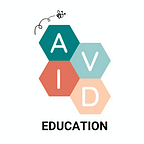WRITE BETTER
5 Research Writing Tips
Valuable tips for you to consider when writing your research paper
So you have been asked to do the unimaginable. WRITE A RESEARCH PAPER! This can be a daunting experience if you have never done it before. When it comes to writing a research paper, the questions we tend to ask ourselves are…
Where do I start?
How do I start?
What do I write about?
Here are 5 tips to get you started.
1) Topic
Selecting your topic is extremely important. This is the headline of your story. Your topic needs to be catchy and interesting. Writing a good title, helps your reader understand your paper even before they begin to read it. In my experience, many students take this section for granted. They write a really good research paper but have a poor title. It is like having prepared a delicious trifle but serving it on a flat plate with a fork (yikes!). Your presentation looks unappetising and people are less likely to try it. Similarly, if your research title is not attractive, no one will want to read your paper.
2) Research
Don’t take research for granted. Read a few papers and articles on the subject you are going to write about. Use keywords to help you search for relevant material.
“Wait, where do I even begin?!”
Try Google Scholar. This will give you an idea on what others have done in your field. It will also help you focus your paper as you see the gap in the literature.
Here is your biggest lifesaver: You DO NOT have to READ the ENTIRE PAPER. Learn to identify key points that are related to your paper. Read the abstract, introduction and conclusion first. This will quickly tell you if the entire paper is worth your time.
Are you also afraid of scrambling towards your deadline? Remember to keep your list of references for your bibliography.
3) Outline
Don’t skip this! Your outline is like a road map that tells you where you are heading. It helps you stay on track with your writing. You can divide your paper into 5 sections:
i. Introduction and Background (10%)
ii. Literature Review (20%)
iii. Methodology (20%)
iv. Results and Discussions (40%)
v. Conclusions (10%)
Most of your paper should cover your RESULTS and DISCUSSION. This means you should spend more time here because it presents new information to the reader.
4) Just write!
Are you double guessing yourself? Stop right there! Put down all your thoughts and ideas in a 20-minute block writing exercise. Use your phone to set the time. Then, start typing out your ideas as they come to you. Write as much as you can and put your thoughts down in bullet points. Do not stop to correct them!
Once the 20 minutes is up, take a 5-minute break. Check your social media or go get a drink (cheers). Then, come back and reread what you have written. Now you can start organising these points into paragraph headings and sub points within your paragraph. Remember to put your ideas in your own words. This will help you avoid plagiarism.
5) Language
In an academic paper, you want to keep the language less colloquial. So, you need to sound less spoken. For starters, write all your words in full and don’t (I mean do not) use contractions.
❌ that’s, didn’t
✅ that is, did not
The most important tip of all is spelling! Research journals are quick to reject papers that have not been edited properly. Although spell check is an amazing tool, it is not able to detect all spelling errors, especially homophones (words that sound alike but have different spelling). These can be tricky if you are not paying attention to your writing.
Examples
presence vs presents
brake vs break
Take the time to read your work. Better yet, get a friend to proofread your paper before submitting it. Finally, read your paper out aloud. This is a good way to identify long and confusing sentences. Trust the process.
Happy writing!
